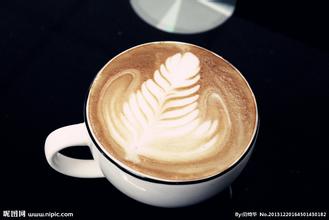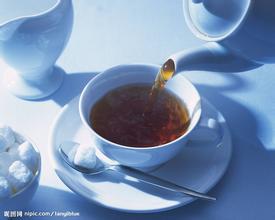Fragrant Colombian Coffee Culture and Variety characteristics of Fine Coffee beans
In 1824, the Colombian and Peruvian coalition forces defeated the Spanish colonial army, and Peru gained independence. During the war with Bolivar's army in Peru, Santander took over as president and presided over the affairs of Colombia. Santander advocated the establishment of a federal regime and United local forces against Bolivar's political proposition of unity and unity. Factional struggle within the Colombian Congress and government became increasingly acute in January 1830, Bolivar resigned as president in Congress in an effort to bridge differences and maintain national unity, but to no avail. On May 31, Quito announced its withdrawal from Colombia and the establishment of the Republic of Ecuador. Bolivar died on December 17, followed by the disintegration of Colombia. In 1831, when Colombia and Panama were renamed New Granada in the general election of 1884, the Liberal Party split into the Conservative candidate R. Nunez created a chance to be elected president. In order to consolidate the dictatorship of the big landlords and restore the power of the Catholic Church, the Conservative government enacted a constitution in 1886, declared Catholicism as the national religion, strengthened the power of the president, and changed the name of the country to the Republic of Colombia. The Conservative Party brutally persecuted dissidents and suppressed the masses. The so-called "Thousand Day War" broke out between the Liberal Party and the Conservative Party from 1899 to 1902, and the national economy was seriously damaged. After Colombian President Uribe came to power in 2002, he adopted a tougher right-wing line. FARC was vigorously besieged and suppressed by the government. The Revolutionary Armed Forces of Colombia killed Uribe's father in 1983. After Uribe came to power, the top priority was to fight against the Revolutionary Armed Forces of Colombia, which brought Colombia closer to the United States, and the United States gave more money to Colombia. Since 2000, in the face of the intensified crackdown by the government, the Revolutionary Armed Forces of Colombia (FARC) began to withdraw gradually. The tide of the left has risen one after another in South America in recent years, and Colombia is one of the few countries where the right is still in power.
Colombian coffee culture is also unique, coffee is the pride of Colombians, Colombians like to talk about a few things, in addition to their football, which was once one of the best in the world, is their proud coffee. Drinking coffee in Colombia is a pleasure. Not only is it necessary three times a day, but the streets are full of cafes and customers are full of seats from morning till night. There is no instant saying in the cafe. It is now cooked and sold. The young lady pours it with exquisite porcelain bowls, respectfully presents it to the customers, and adds sugar at will. The aroma is pervasive in the room, the bowl is sweet and delicious, and the slow taste is endless in aftertaste. No wonder the local people are addicted to it.
If you visit a friend or a government official in Colombia, you will first get a cup of Colombian coffee and refill it several times during the conversation. So on one visit, you will taste several cups of Colombian coffee. And there are many brands of Colombian coffee, all of which have their own unique tastes. In addition, there are many products of coffee as raw materials, such as coffee sugar, coffee wine, coffee bean handicrafts and so on. There are also many ways to drink coffee, some with milk, some without milk, some with foam, some with cold coffee and iced coffee. Wherever you go in Colombia, there is a coffee shop in even a small village. Coffee is provided free of charge at many airports.
Coffee is provided free of charge at all offices in Colombia, like our pure water. After work, there is a special waiter to prepare the coffee. The last coffee at 10:00, you can ask the waiter to serve it again at any time if you need it. So for them, Arabica coffee has the same varied and broad potential flavor as we drink tea. Arabica coffee produced in different regions, different elevations and different climatic areas usually has its own characteristics. It smells like grass when it is not roasted, and after proper roasting, it shows fruity (light baked) and caramel sweet (deep roasted). Her excellent flavor and aroma make her the only coffee among these native species that can be drunk directly and alone. As a result, she won more praise than any other coffee: known as "green gold".
Export and Management of Colombian Coffee
Compared with other producing countries, Colombia is more concerned with developing products and promoting production. It is this, coupled with its superior geographical and climatic conditions, that makes Colombian coffee excellent in quality and delicious and famous all over the world. The status of coffee in Colombia is evident in the following examples: all vehicles entering the country must be sprayed and sterilized so as not to inadvertently cause disease and damage coffee trees.

Important Notice :
前街咖啡 FrontStreet Coffee has moved to new addredd:
FrontStreet Coffee Address: 315,Donghua East Road,GuangZhou
Tel:020 38364473
- Prev

Description of Flavor of High-quality Coffee beans in Rwanda Coffee Variety producing area
Located in the central part of Rwanda, Kigali, which was founded in 1907, is the political, economic and cultural center of the country. It covers an area of 730 square kilometers and has a population of 1.13 million (2013), 70 per cent of which are in the suburbs. With a pleasant climate, tidy appearance, orderly traffic and good law and order, Kigali is considered one of the safest capitals in Africa and became the first African capital in 2008.
- Next

Introduction to the characteristics of high-quality coffee beans in Hawaiian coffee producing areas
The Hawaiian islands are formed by volcanic eruptions, including 8 large islands and 124 small islands, stretching for 2450 kilometers, forming a crescent-shaped island chain. Hawaii is the largest island, with two active volcanoes. The climate is mild and pleasant all the year round, the precipitation is greatly affected by the topography, there are great differences in different places, and the forest coverage rate is nearly 50%. Honshu is made up of nineteen major islands and coral reefs, located in the middle
Related
- Detailed explanation of Jadeite planting Land in Panamanian Jadeite Manor introduction to the grading system of Jadeite competitive bidding, Red bid, Green bid and Rose Summer
- Story of Coffee planting in Brenka region of Costa Rica Stonehenge Manor anaerobic heavy honey treatment of flavor mouth
- What's on the barrel of Blue Mountain Coffee beans?
- Can American coffee also pull flowers? How to use hot American style to pull out a good-looking pattern?
- Can you make a cold extract with coffee beans? What is the right proportion for cold-extracted coffee formula?
- Indonesian PWN Gold Mandrine Coffee Origin Features Flavor How to Chong? Mandolin coffee is American.
- A brief introduction to the flavor characteristics of Brazilian yellow bourbon coffee beans
- What is the effect of different water quality on the flavor of cold-extracted coffee? What kind of water is best for brewing coffee?
- Why do you think of Rose Summer whenever you mention Panamanian coffee?
- Introduction to the characteristics of authentic blue mountain coffee bean producing areas? What is the CIB Coffee Authority in Jamaica?

